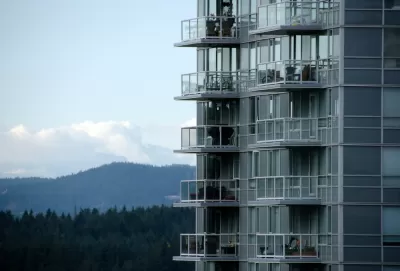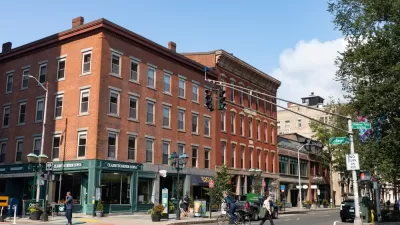The 2023 budget for the province of British Columbia reveals a deep commitment to supporting the creation of new housing.

Ten years ago, the NDP government in British Columbia approved an ambitious 10-year housing plan, including taxes on the most expensive properties, vacant properties, and properties owned by foreign buyers. Now, ten years in, the cost of housing is still climbing, quickly, according to an article by Jen St. Denis, and a new premier administration is pushing for a new direction in housing policy, namely supply.
“B.C. has a new premier — one who led the charge when it came to taxing speculation, but is now emphasizing ‘supply, supply, supply,’” writes St. Denis. “David Eby has particularly focused on zoning, normally a municipal responsibility, and has pushed cities to allow more density.”
At this critical political juncture, the B.C. government has recently produced a budget for 2023 revealing numerous details about the province’s housing policies for the year. Included in the budget, for example, is funding for a new $500 million affordable housing fund, intended for buying somewhere between 2,000 to 3,000 apartments. In addition, the government has pledged $4.2 billion to build new housing over the next three years through a program called BC Builds—a key campaign promise of Premier Elby.
The budget also includes a $400 renter tax credit and $11 million “to implement new legislation introduced in the Housing Supply Act, which included allowing the provincial government to set housing targets in consultation with municipalities and to require them to report on their progress,” according to St. Denis. “Another $57 million is identified over the next three years ‘to unlock more homes through new residential zoning measures and by reducing the time and cost associated with local government approval issues.’”
More details on the housing initiatives underway in British Columbia can be found at the source article below.
FULL STORY: Five Things to Know about BC’s Housing Plan

Planetizen Federal Action Tracker
A weekly monitor of how Trump’s orders and actions are impacting planners and planning in America.

Maui's Vacation Rental Debate Turns Ugly
Verbal attacks, misinformation campaigns and fistfights plague a high-stakes debate to convert thousands of vacation rentals into long-term housing.

San Francisco Suspends Traffic Calming Amidst Record Deaths
Citing “a challenging fiscal landscape,” the city will cease the program on the heels of 42 traffic deaths, including 24 pedestrians.

Amtrak Rolls Out New Orleans to Alabama “Mardi Gras” Train
The new service will operate morning and evening departures between Mobile and New Orleans.

The Subversive Car-Free Guide to Trump's Great American Road Trip
Car-free ways to access Chicagoland’s best tourist attractions.

San Antonio and Austin are Fusing Into one Massive Megaregion
The region spanning the two central Texas cities is growing fast, posing challenges for local infrastructure and water supplies.
Urban Design for Planners 1: Software Tools
This six-course series explores essential urban design concepts using open source software and equips planners with the tools they need to participate fully in the urban design process.
Planning for Universal Design
Learn the tools for implementing Universal Design in planning regulations.
Heyer Gruel & Associates PA
JM Goldson LLC
Custer County Colorado
City of Camden Redevelopment Agency
City of Astoria
Transportation Research & Education Center (TREC) at Portland State University
Jefferson Parish Government
Camden Redevelopment Agency
City of Claremont





























